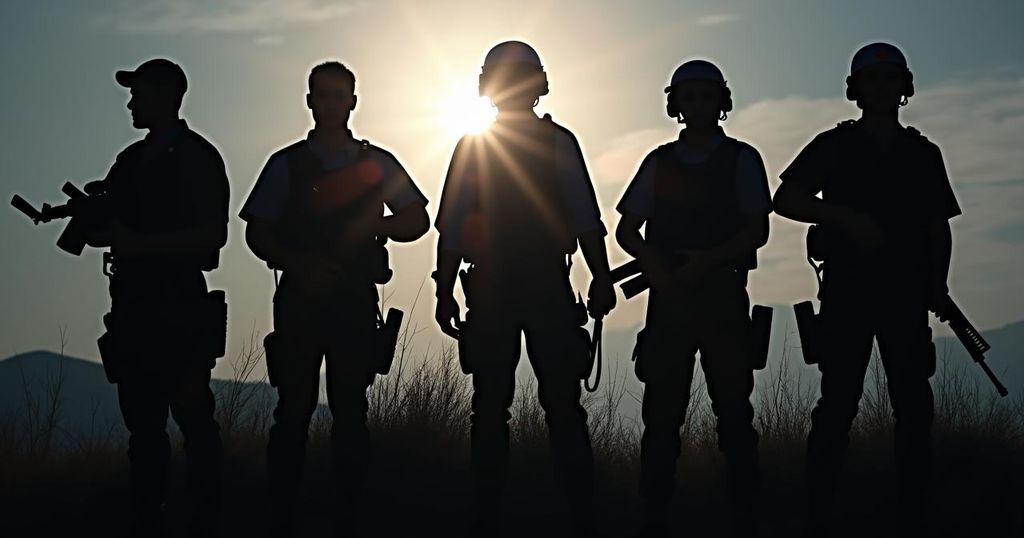Philippines Policies Shift as Government Targets Duterte-Linked Fugitives Amidst Alliance Collapse
In September 2024, the Philippine government arrested six high-profile fugitives linked to former President Rodrigo Duterte, marking a significant crackdown influenced by the crumbling political alliance between President Ferdinand Marcos Jr. and the Duterte family. Notable arrests included Alice Guo, Apollo Quiboloy, and Lloyd Christopher Lao, highlighting the newly assertive stance of the Marcos administration against former allies of Duterte.
The Philippines has recently intensified its efforts to apprehend high-profile fugitives connected to former President Rodrigo Duterte, especially following the collapse of the political alliance between the current president, Ferdinand Marcos Jr., and the Dutertes. During September 2024, six major suspects were arrested, a significant achievement attributed to the diminishing political ties between Marcos and the Duterte family. Analysts suggest that this shift in dynamics has emboldened Marcos to take a tougher stance against the alleged immunity enjoyed by Duterte’s allies. Among the prominent figures arrested was former Davao City Mayor Alice Guo, who is alleged to have connections with an organized crime group linked to fraudulent online casino operations. Guo, who fled to Indonesia but was deported back to the Philippines, was the first to be apprehended. Soon after, Apollo Quiboloy, a controversial religious leader and advisor to Duterte, was arrested. He faces serious accusations, including sexual assault and human trafficking. Other notable arrests include former budget undersecretary Lloyd Christopher Lao, connected to the procurement of overpriced COVID-19 supplies during Duterte’s term, and Chinese businessman Tony Yang, implicated in organized crime activities. Despite expressing the need to pursue justice independent of political motivations, some government officials acknowledged the prior lack of action against these fugitives due to political ties. This evolving situation highlights the Marcos administration’s shift towards demonstrating accountability and willingness to confront the issues surrounding the illicit activities of Duterte’s former allies. General Rommel Marbil of the Philippine National Police emphasized that the recent arrests are not politically motivated but are being executed in response to valid warrants, reinforcing the principle of law enforcement. Nonetheless, lapses in security and intelligence capabilities were noted during Guo’s initial escape, prompting discussions on improving protocols and international cooperation for border control. While the government faces pressure to prosecute these cases diligently, experts urge reforms to address the underlying conditions that have allowed such criminal activities to flourish.
In the context of the Philippines, the political landscape has seen significant dynamics with the fall of the Duterte-Marcos alliance. Rodrigo Duterte’s presidency was characterized by a culture of impunity, particularly concerning anti-narcotics policies and various questionable governance practices that were criticized both nationally and internationally. Following Ferdinand Marcos Jr.’s rise to the presidency in 2022, there has been a noticeable departure from Duterte-era policies as well as a concerted effort to hold individuals accountable within the prior administration’s trusted circle. This backdrop of political reorientation has set the stage for the current crackdown on fugitives tied to Duterte, suggesting a significant shift in law enforcement strategies in response to shifting political allegiances.
In summary, the arrests of key fugitives linked to the Duterte administration signal a crucial turning point in the Philippine government’s approach to law enforcement under President Ferdinand Marcos Jr. The shift away from the former alliance with the Duterte clan has illuminated the government’s resolve to combat impunity and address crimes committed under Duterte’s leadership. While challenges in intelligence and security remain, the recent actions reflect a commitment towards accountability and the promise of judicial reforms to curtail future illegal activities.
Original Source: asianews.network




Post Comment